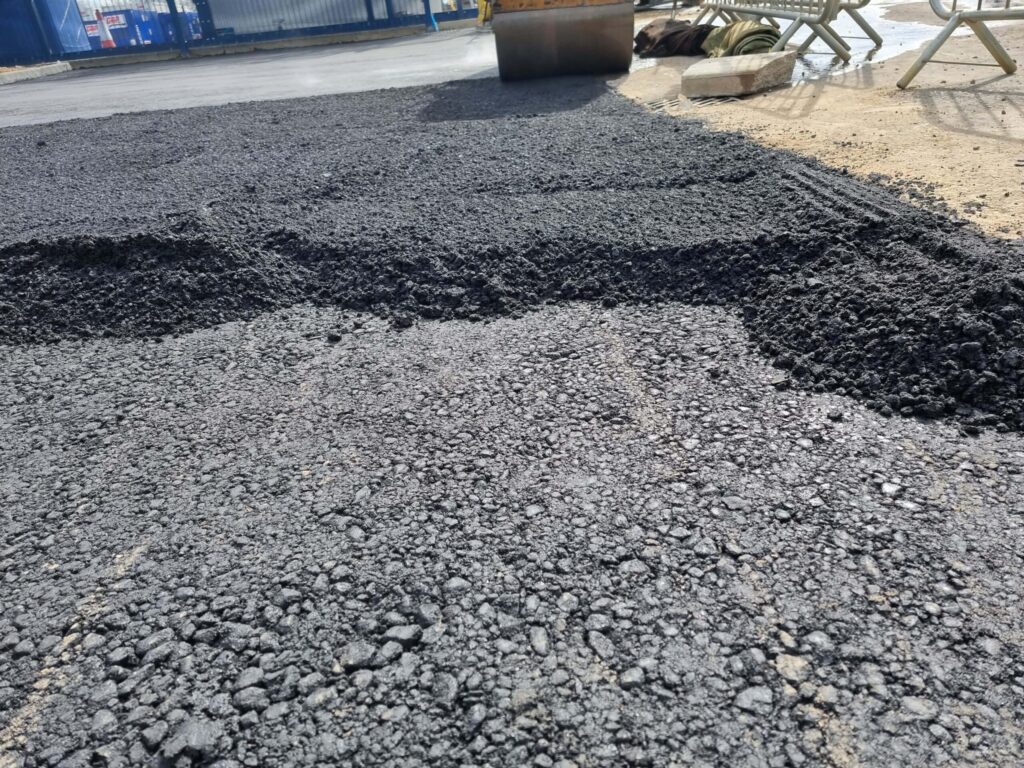Tar & Chip for Solar Farm Access Roads: A Sustainable Choice
Introduction: Solar farms are at the forefront of renewable energy production, harnessing the power of the sun to generate clean electricity. These sprawling facilities require efficient access roads to navigate the vast array of solar panels, maintenance equipment, and personnel. Tar and chip surfacing has emerged as an ideal choice for access roads to meet the demands of these solar farms while maintaining sustainability. In this blog post, Felixstowe Driveway Services explores the benefits of Tar and chip surfacing for solar farm access roads and its contribution to sustainable energy production.
The Role of Access Roads in Solar Farms
Access roads are the lifelines of solar farms, serving several crucial functions:
- Maintenance and Repairs: Solar panels and equipment require regular and occasional repairs. Access roads facilitate the movement of maintenance crews and their equipment to the necessary locations.
- Installation: During the initial installation of solar panels, access roads are essential for transporting heavy equipment and materials to the installation sites.
- Monitoring and Inspections: Solar farms often require routine monitoring and inspections. Access roads enable easy access for technicians and inspectors.
- Emergency Response: In case of equipment malfunctions or emergencies, access roads provide a quick route for response teams to reach the affected areas.
Why Choose Tar & Chip Surfacing?
Tar & Chip surfacing, also known as chip seal, offers several advantages that make it an excellent choice for solar farm access roads:
- Cost-Effective: Solar farms aim to maximise their return on investment. Tar and chip surfacing is a cost-effective option, allowing solar farm operators to allocate more resources to the solar infrastructure.
- Durability: The Tar and chip process involves applying hot liquid asphalt (Tar) and a layer of stone chips. This creates a robust, resilient surface capable of withstanding heavy traffic, including maintenance and construction equipment.
- Low Maintenance: Once installed, Tar and chip surfaces require minimal maintenance. Periodic resealing can extend their lifespan significantly.
- Traction and Safety: The textured surface of Tar & Chip provides excellent traction, reducing the risk of accidents on access roads.
- Environmental Benefits: The use of natural stone chips and the reduced need for maintenance contribute to the environmentally friendly nature of Tar and chip surfacing.
Sustainability in Solar Farm Operations
The adoption of Tar and chip surfacing for access roads aligns with the sustainability goals of solar farms in several ways:
- Reduced Environmental Impact: Tar and chip surfaces require fewer raw materials than traditional asphalt or concrete, reducing the environmental footprint of road construction.
- Cost Savings: The cost-effectiveness of Tar & Chip allows solar farm operators to allocate resources toward clean energy production and other sustainability initiatives.
- Long-Term Performance: The durability of Tar and chip surfacing ensures that access roads remain functional for extended periods, reducing the need for frequent repairs and replacements.
Conclusion: Solar farms are critical in transitioning to renewable energy sources, and their sustainability efforts extend beyond electricity generation. By choosing Tar and chip surfacing for access roads, solar farm operators can maintain cost-effective, durable, and environmentally friendly roadways to support the ongoing success of their clean energy initiatives.
Call us on: 01394 338 693
Click here to find out more about Felixstowe Driveway Services
Click here to complete our contact form and see how we can help with your driveway needs.

